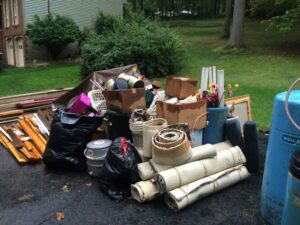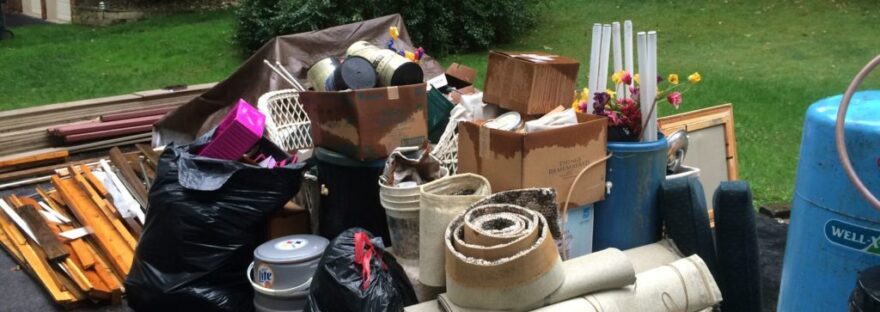Junk Removal Murrieta is more than just taking out the trash. It’s a form of reclaiming control over your space. Many people underestimate how clutter affects their peace. Yet the burden of excess can weigh heavily on the mind.
People often delay junk removal until it becomes urgent. This builds up unnecessary stress over time. Items pile up and blend into the background. Eventually, what was once clutter becomes invisible chaos.
The emotional toll of clutter is often overlooked. Old furniture, broken items, or unused tools carry memories. Letting go can feel like erasing a part of the past. But holding on may actually be holding you back.
Today’s approach to junk removal has changed. It’s no longer just about dumping waste. It’s about creating meaningful space for present and future living. That mindset shift is powerful and needed.
Many are embracing minimalist living, but struggle with the first step. Junk removal becomes the foundation of that lifestyle. Clearing physical space allows mental space to grow. The two are deeply connected.
A growing trend is personalized removal plans. These focus on the type, volume, and emotional weight of junk. It’s not just about hauling—it’s about understanding the person behind the pile. This adds a human touch to a once cold task.
Digital clutter has also become part of junk culture. Outdated devices and tangled cords are common issues. Many people keep these items without real purpose. Disposing of them properly is now part of modern cleanups.
Eco-conscious junk removal is on the rise. People want to know where their waste goes. Landfills are the last option, not the first. Reuse and repurpose are gaining more importance than ever before.
Some services now offer item audits. These help determine what can be salvaged, donated, or recycled. It turns junk removal into a responsible decision. You don’t just throw things away—you redirect them meaningfully.
Time sensitivity plays a bigger role than before. Busy lifestyles mean people want fast, easy disposal. On-demand removal is becoming the norm. People expect solutions that don’t interrupt their schedules.
Another shift is privacy-focused cleanouts. Items like old documents, hard drives, and personal collections require discretion. Secure disposal gives peace of mind. It adds an extra layer of professionalism to the service.
Seasonal purging has become part of modern rituals. People now align junk removal with life transitions. Be it spring cleaning or post-holiday resets, the timing is symbolic. Removing the old allows room for growth.
Family dynamics influence clutter too. Multiple generations living together leads to storage overflow. Deciding what stays and what goes needs sensitivity. It’s more than sorting—it’s about navigating emotions respectfully.
Remote junk consultations are emerging. Experts guide clients via video before actual removal. It saves time and gives clients confidence. Technology is helping declutter more thoughtfully.
Junk is no longer seen as mere garbage. In some cases, it’s raw material for new ideas. Artists, designers, and builders now tap into discarded goods. This upcycles waste into useful or decorative items.
Urban dwellers face unique junk issues. Small spaces make clutter more noticeable and disruptive. Efficient junk solutions cater to tighter living areas. Creative storage alternatives often arise after a successful cleanup.
Another rising topic is decluttering after trauma. Grief, divorce, or illness can paralyze decision-making. Specialized services now offer support for such sensitive cleanouts. They approach the work with empathy, not just efficiency.
Virtual hoarding has entered the conversation. People collect files, digital assets, or online shopping items. While intangible, it creates the same stress. Addressing this requires a broader view of what “junk” means today.
Many are unaware of hidden hazards in old items. Chemicals, broken glass, or expired products pose risks. Junk removal ensures safer living conditions. It’s a matter of health as much as aesthetics.
Younger generations now prioritize clean aesthetics. A clutter-free backdrop supports content creation and mental clarity. They remove junk not just for comfort but also for digital presence. Image plays a role in junk removal decisions.
Emotional triggers often block junk removal progress. People assign meaning to every object. Trained professionals now use techniques to ease this tension. It turns cleanup into a healing journey.
Donation coordination is becoming a valuable option. Instead of simply discarding, items are rerouted to causes. This adds purpose to the act of letting go. It transforms junk removal into an act of giving.
Space recovery is another angle often missed. Once items are cleared, the area transforms. What was once a storage corner becomes a home office or hobby nook. Junk removal isn’t just subtraction—it’s transformation.
Junk removal also intersects with mobility. Moving homes or downsizing forces quicker decisions. Items need to be dealt with swiftly but thoughtfully. It’s a test of priorities and adaptability.
Rental cleanups are gaining traction too. Tenants often leave behind clutter. Landlords benefit from efficient removal between leases. A clean space ensures faster turnover and less legal friction.
Digital booking has simplified everything. Clients can now schedule, pay, and customize online. This takes pressure off the user. Convenience makes the task more approachable.
People now seek junk removal for events. Hosting a gathering means clearing space fast. Cleanouts before weddings, parties, or reunions are more common. It sets the tone for a welcoming environment.
Even pets play a role in clutter. Old toys, cages, or accessories accumulate over time. Removing them when no longer needed creates harmony. It also frees up floor space for better movement.
Office junk has unique challenges. Broken chairs, outdated tech, and old files pile up quietly. Remote work shifts have made cleanup more urgent. Clear office space now reflects company values and efficiency.
Some communities now arrange group cleanups. Neighbors unite to remove shared clutter. This creates social bonds while improving the area. Junk removal becomes a form of civic pride.
There’s also a trend toward emotional pre-clearing. People mentally prepare before removal. Visualizing clean spaces helps them part with items. It eases guilt and replaces it with a sense of progress.
Sleep quality is affected by clutter. Bedrooms overloaded with things disrupt rest. Removing items from sleep areas improves relaxation. Junk removal can even enhance health through better sleep hygiene.
Many people ignore ceiling storage and attic clutter. These hidden spots become forgotten junk zones. Reclaiming them provides unexpected freedom. It’s like uncovering a secret room in your own home.
Retirement cleanouts bring new challenges. Years of memories stored in physical items must be reviewed. It’s a slow but powerful process. Junk removal in these cases is deeply tied to legacy.
Some companies now provide aftercare. Once removal is done, they guide you on staying organized. They offer tips, checklists, and emotional advice. This ensures the problem doesn’t repeat.
Junk removal also impacts fire safety. Overloaded garages or hallways pose risks. Clearing them reduces hazards significantly. Safety becomes a natural result of cleanliness.
Many think they’ll miss the items once removed. But most feel a sense of relief instead. The space becomes lighter and more breathable. Letting go opens doors you didn’t know were shut.
Children’s items often add to clutter. As kids grow, their toys and clothes pile up. Removing these items frees emotional and physical space. It makes room for new stages of life.
Unfinished projects often linger in clutter zones. Abandoned tools, supplies, or kits stay around for years. Letting them go accepts reality without guilt. It’s a mature act of self-awareness.
Minimalism is not about having nothing. It’s about having only what serves you now. Junk removal is the first step toward that clarity. It’s practical and philosophical at once.
Once you remove junk, habits change too. You become more mindful about bringing in new things. Your environment teaches you to value space. It’s an ongoing dialogue between person and place.
Whether one item or a whole truckload, every piece matters. Junk is not just debris—it’s deferred decisions. Facing them head-on creates strength. The path to clarity begins with clearing.

